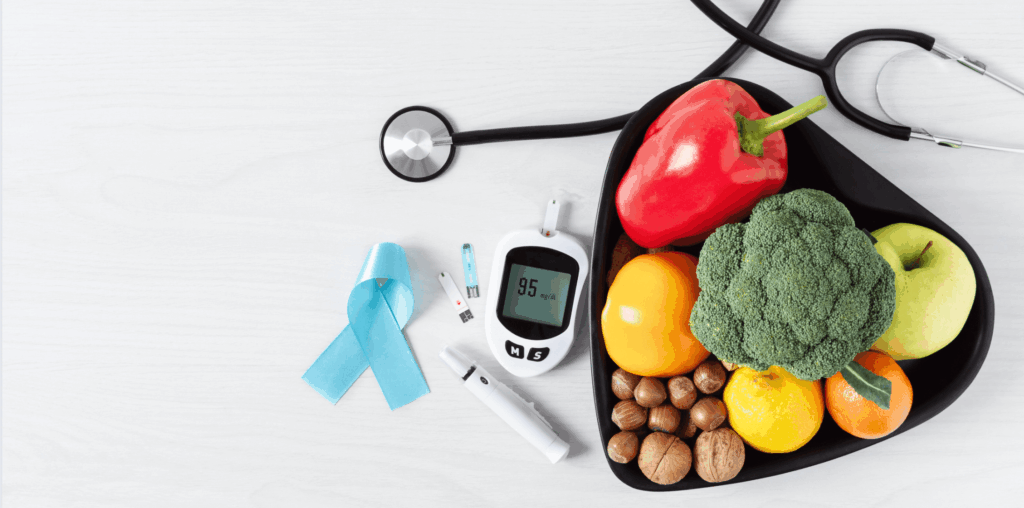Living with diabetes requires a proactive approach to maintaining your health, and nutrition plays a crucial role in managing your blood sugar levels. By adopting a well-planned and balanced diet, you can take control of your diabetes and lead a healthier, more fulfilling life. In this blog post, we’ll explore practical strategies, important facts, and effective tips for managing your blood sugar through diet. Let’s dive in and discover how nutrition can empower you on your diabetes journey!
The Impact of Nutrition on Blood Sugar Control
Proper nutrition is a key component of diabetes management, as the foods you consume directly affect your blood sugar levels. It’s important to understand how different nutrients and dietary choices impact your glucose levels. Here are some facts to consider:
- Carbohydrates have the greatest influence on blood sugar levels, so portion control and choosing the right types of carbs are crucial.
- Proteins and fats have a minimal impact on blood sugar, but they provide essential nutrients and contribute to satiety.
- Fiber-rich foods, such as fruits, vegetables, and whole grains, help slow down the absorption of glucose, leading to better blood sugar control.

Carbohydrate Management for Stable Blood Sugar Levels
Carbohydrates can be divided into simple and complex forms, and understanding their impact on blood sugar is vital. Here are some tips to manage your carbohydrate intake:
- Choose complex carbohydrates like whole grains, legumes, and vegetables over refined carbohydrates.
- Practice portion control by measuring your carbohydrate portions or using the plate method.
- Spread out your carbohydrate consumption throughout the day to avoid sudden spikes in blood sugar.
- Monitor your blood sugar levels after meals to identify which foods and portions work best for you.

Incorporating Protein and Healthy Fats into Your Diet
Proteins and fats are essential for overall health and can help stabilize blood sugar levels. Here’s what you need to know:
- Include lean protein sources like poultry, fish, tofu, and legumes in your meals.
- Opt for healthy fats found in nuts, seeds, avocados, and olive oil, while limiting saturated and trans fats.
- Combining protein, healthy fats, and carbohydrates in your meals can help slow down the digestion and absorption of glucose.

The Power of Fiber for Blood Sugar Control
Dietary fiber is a game-changer for diabetes management. Here are some ways to incorporate more fiber into your diet:
- Choose whole grains instead of refined grains.
- Include plenty of fruits and vegetables in your meals and snacks.
- Consume legumes, such as beans and lentils, as they are high in fiber and protein.
- Gradually increase your fiber intake to prevent digestive discomfort.

Practical Tips for Diabetes-Friendly Eating
In addition to the specific dietary recommendations mentioned above, here are some general tips to help you manage your blood sugar levels through diet:
- Plan your meals and snacks in advance to ensure a balanced intake of nutrients.
- Monitor your portion sizes and be mindful of calorie intake to maintain a healthy weight.
- Stay hydrated by drinking water throughout the day.
- Limit added sugars and sugary beverages, as they can quickly raise blood sugar levels.
- Engage in regular physical activity to support blood sugar control.

Taking control of your diabetes starts with managing your blood sugar levels, and nutrition plays a vital role in achieving this. By understanding the impact of different nutrients on your glucose levels and implementing practical tips for a diabetes-friendly diet, you can effectively manage your condition and enjoy a healthier, more fulfilling life. Remember to consult with a healthcare professional or registered dietitian for personalized guidance and support.
Learn more about getting connected with a Nutritionist at https://gocuris.com/nutrition/.
